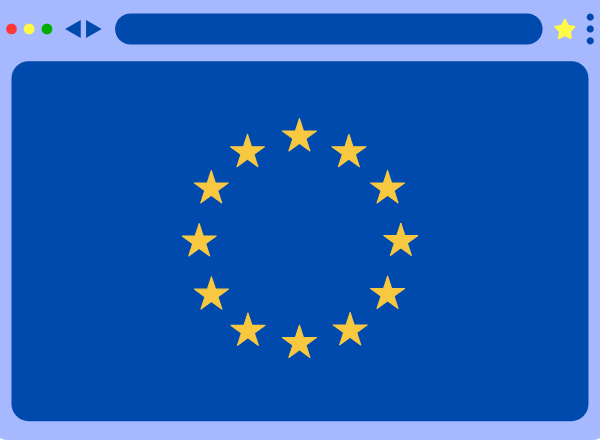The Digital Services Act (DSA) is a new regulation in EU law that aims to create a safer and more responsible online environment. It was adopted by the European Parliament and the Council of the European Union on July 5, 2022 and came into force on August 25, 2023.
The DSA applies to a wide range of online platforms, including social networks, search engines, online marketplaces, and app stores. It establishes a number of obligations for these platforms, including:
- Remove illegal content in a timely manner, such as hate, child pornography, and terrorist content.
- Giving users more control over their data and privacy
- Be more transparent about how they work, such as how they use algorithms to recommend content.
- Cooperate with law enforcement authorities.
The DSA is also creating a new system for monitoring online platforms. The European Commission will be responsible for enforcing the regulations, but it will be supported by the national authorities in each EU Member State.
The DSA is expected to have a significant impact on the functioning of online platforms. It is likely to lead to a more proactive removal of illegal content, greater transparency about how algorithms work, and greater accountability of online platforms.
Who will be affected by DSA?
DSA affects a wide range of online platforms, including:
- Social media platforms: Facebook, Twitter, Twitter, Instagram, TikTok
- Search engines: Google, Bing, Yahoo
- Online marketplaces: Amazon, eBay, Alibaba
- App Stores: Apple App Store, Google Play Store
- Online ads: Craigslist, Gumtree
- Online forums: Reddit, Quora
- Online news publishers
- Online gaming platforms
The DSA also affects businesses that use online platforms to sell their products or services. These businesses will need to ensure that they comply with DSA requirements, such as providing clear information about their products and services and ensuring that their websites are accessible to people with disabilities.
How does the DSA make the internet more secure?
The DSA is designed to make the internet safer by making it easier for users to report illegal content and by requiring platforms to remove that content promptly. The DSA also requires platforms to be more transparent about how they operate, which will help users understand how their data is being used.
The DSA should also contribute to the fight against misinformation. Platforms are required to take steps to prevent the spread of misinformation, such as labeling political ads and giving users greater control over the content they see.
What are the challenges of applying the DSA?
The DSA is a complex regulation and it is difficult to enforce it effectively. One challenge is that the DSA applies to a wide range of online platforms, each operating in a different way. Another challenge is that the DSA requires platforms to take action against illegal content, but it's not always easy to identify what constitutes illegal content.
The European Commission will have to work closely with national authorities to ensure that the DSA is effectively applied. A “digital services coordinator”, an independent authority appointed by each Member State, is set up. In France, the national coordinator will be Arcom.. In other countries, it will also be the media authority.
The Commission will also need to provide guidance to platforms on how to comply with DSA requirements.
The DSA is an important piece of legislation that has the potential to make the internet a safer and more responsible place. It is still too early to say how the DSA will be implemented and enforced, but it is a step in the right direction.






.png)